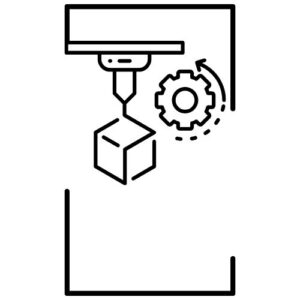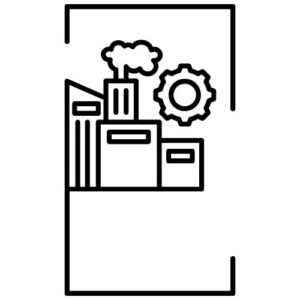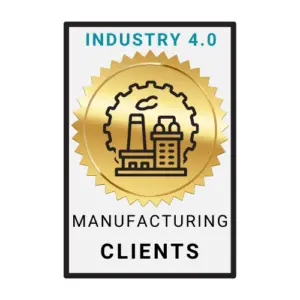The Future of Advanced Manufacturing- Technologies Reshaping Key Industries
As Industry 4.0 accelerates digital transformation in advanced manufacturing, companies across sectors are leveraging novel technologies to drive efficiency, sustainability, and competitiveness. From artificial intelligence (AI) and robotics to additive manufacturing and digital twins, the next generation of industrial innovation is reshaping how products are designed, produced, and delivered.
What is Advanced Manufacturing?
Advanced manufacturing refers to the use of cutting-edge technologies, such as automation, AI, robotics, digital twins, and additive manufacturing (3D printing), to enhance production efficiency, precision, and sustainability. It integrates data-driven decision-making, smart supply chains, and real-time monitoring to optimize manufacturing processes across industries.
The World Economic Forum’s Global Lighthouse Network recognizes manufacturing sites that are leaders in adopting Fourth Industrial Revolution technologies. These sites demonstrate significant advancements in productivity, sustainability, and workforce engagement. Drawing insights from their 2025 report, we examine how advanced manufacturing is revolutionizing four key industries: Consumer Packaged Goods (CPG), Energy, Aerospace & Defense, and Chemicals.
Advanced Manufacturing and its Impact on Key Industries
Consumer Packaged Goods (CPG) : AI-Driven Smart Factories
Key Technologies:
- AI and Machine Learning (ML): Predictive maintenance and demand forecasting
- IoT and Digital Twins: Real-time supply chain optimization
- Advanced Robotics: Autonomous packaging and sorting
Successful Deployment of AI-Powered Predictive Maintenance & Automation
Integrate AI and machine learning to create a “lights-out” smart factory with minimal human intervention. AI-driven predictive maintenance reduces downtime by identifying machine failures before they occur. Reduce operational costs while improving overall equipment effectiveness.
In the CPG sector, companies are also leveraging digital technologies to enhance supply chain resilience and customer centricity. By implementing advanced analytics and automation, these organizations achieve greater agility in production and distribution, meeting dynamic consumer demands efficiently.

Aerospace & Defense : Smart Factories and Advanced Robotics
Key Technologies:
- Autonomous Robotics: AI-driven assembly and quality control
- IoT-Connected Supply Chains: Real-time tracking and logistics optimization
- Additive Manufacturing: Lightweight, high-performance aerospace components
Advanced Manufacturing with Robotics in Aircraft Assembly
The forefront of Industry 4.0 in aerospace manufacturing utilizes AI-powered collaborative robots (“cobots”) to assist with drilling and fastening tasks to streamline production. This integration facilitates precision in assembly and real-time monitoring of components, ensuring high-quality outputs.
The integration of IoT sensors across the factory floor enables real-time data collection, leading to improved efficiency and reduced material waste. Additionally, sustainable titanium powders for the 3D printing of parts for aerospace produces highly resilient, lightweight components while maintaining structural integrity.

Energy Industry : Digital Twins and IoT in Oil & Gas
Key Technologies:
- Digital Twins: Virtual models for predictive analytics in energy infrastructure
- Additive Manufacturing: Custom part fabrication for drilling and refining
- AI & IoT: Real-time monitoring and optimization of energy grids
Solutions and Impact Areas
Integrate AI-driven digital twins to improve asset reliability and reduce maintenance costs in offshore oil rigs and replicate physical assets in a virtual environment allowing engineers to simulate changes before implementation.
Additionally, leverage 3D printing for on-demand spare parts, cutting lead times from weeks to days and reduce dependency on traditional supply chains to maintain production efficiency and reduce carbon footprint.

Chemicals : Smart Process Automation for Sustainability
Key Technologies:
- AI-Optimized Chemical Reactions: Enhancing yield efficiency
- Industrial IoT: Smart sensors for environmental compliance
- Process Automation: Real-time monitoring of chemical production
AI-Driven Process Optimization
Leverage AI and IoT to optimize chemical synthesis and reduce energy consumption. Employ algorithms that analyze production data to minimize waste and enhance yield efficiency. In addition, automation in catalyst production has streamlined workflows, reducing reliance on energy-intensive processes.

The Future of Advanced Manufacturing
Industry 4.0 is reshaping manufacturing through automation, AI, and digitalization. Across CPG, Energy, Aerospace & Defense, and Chemicals, companies are unlocking unprecedented levels of efficiency, sustainability, and innovation. Each sector offers compelling examples of pioneering digital transformation at scale and continues to inspire competitors to also invest in new technology and infrastructure. The future of manufacturing belongs to those who embrace smart technologies transforming traditional production into highly agile, data-driven, and resilient ecosystems.

Ezassi Offers Our Manufacturing Clients Innovation Management Solutions, Research Services and Strategy Consulting.
Contact us for a Technology Landscape or Scouting Report to prepare for these new technologies.
For additional insights, take a look at all the articles in the Innovation Forecast Series.






